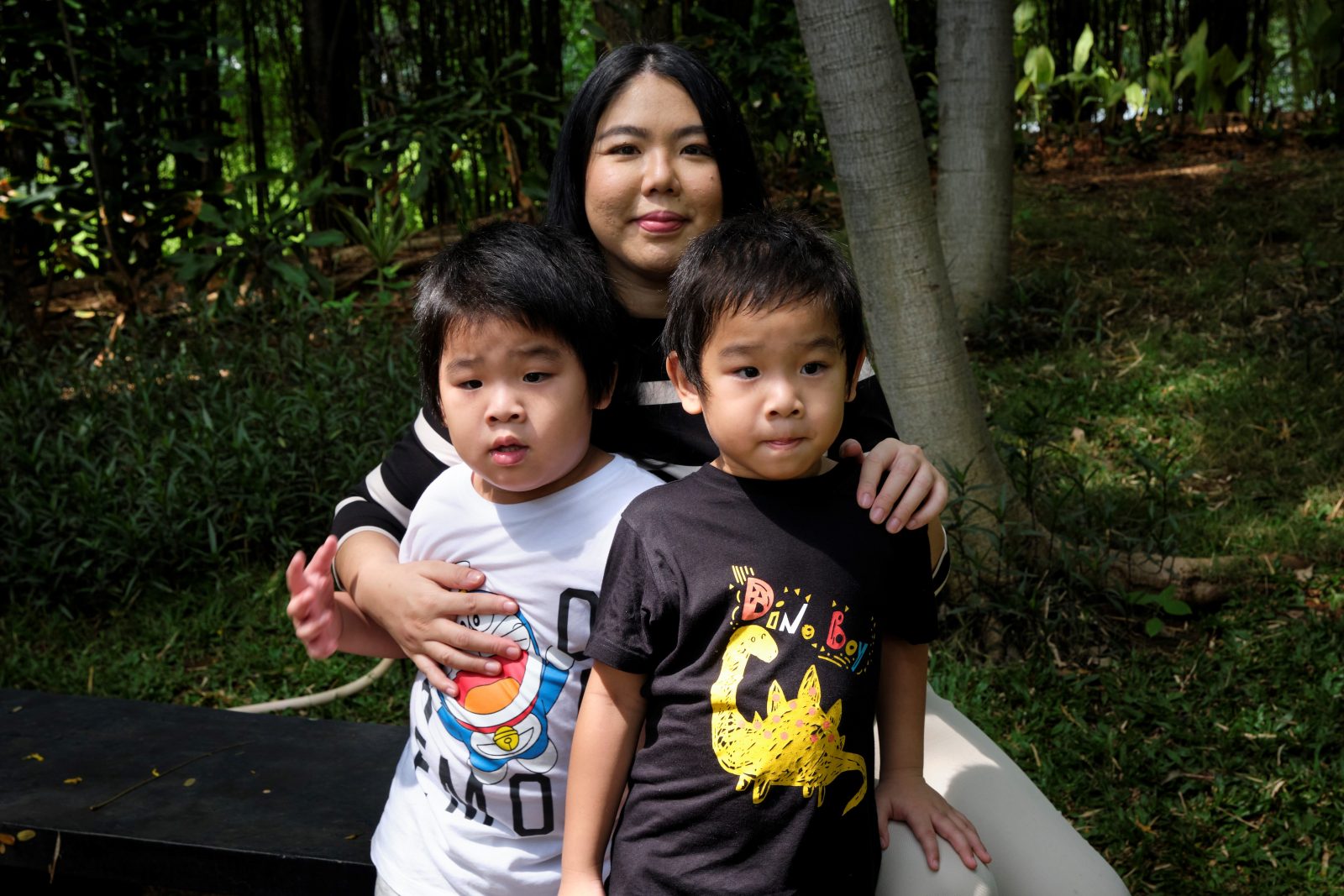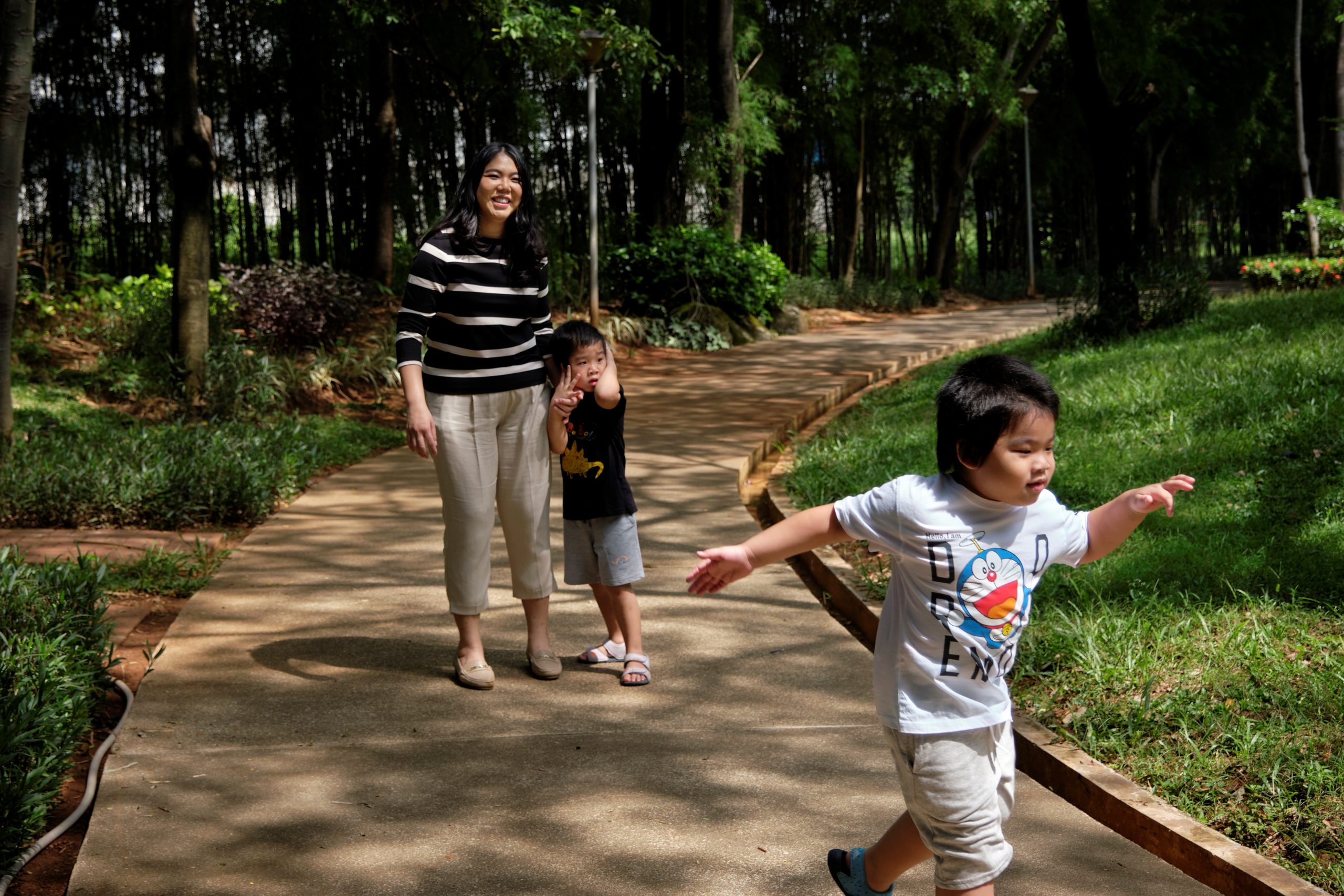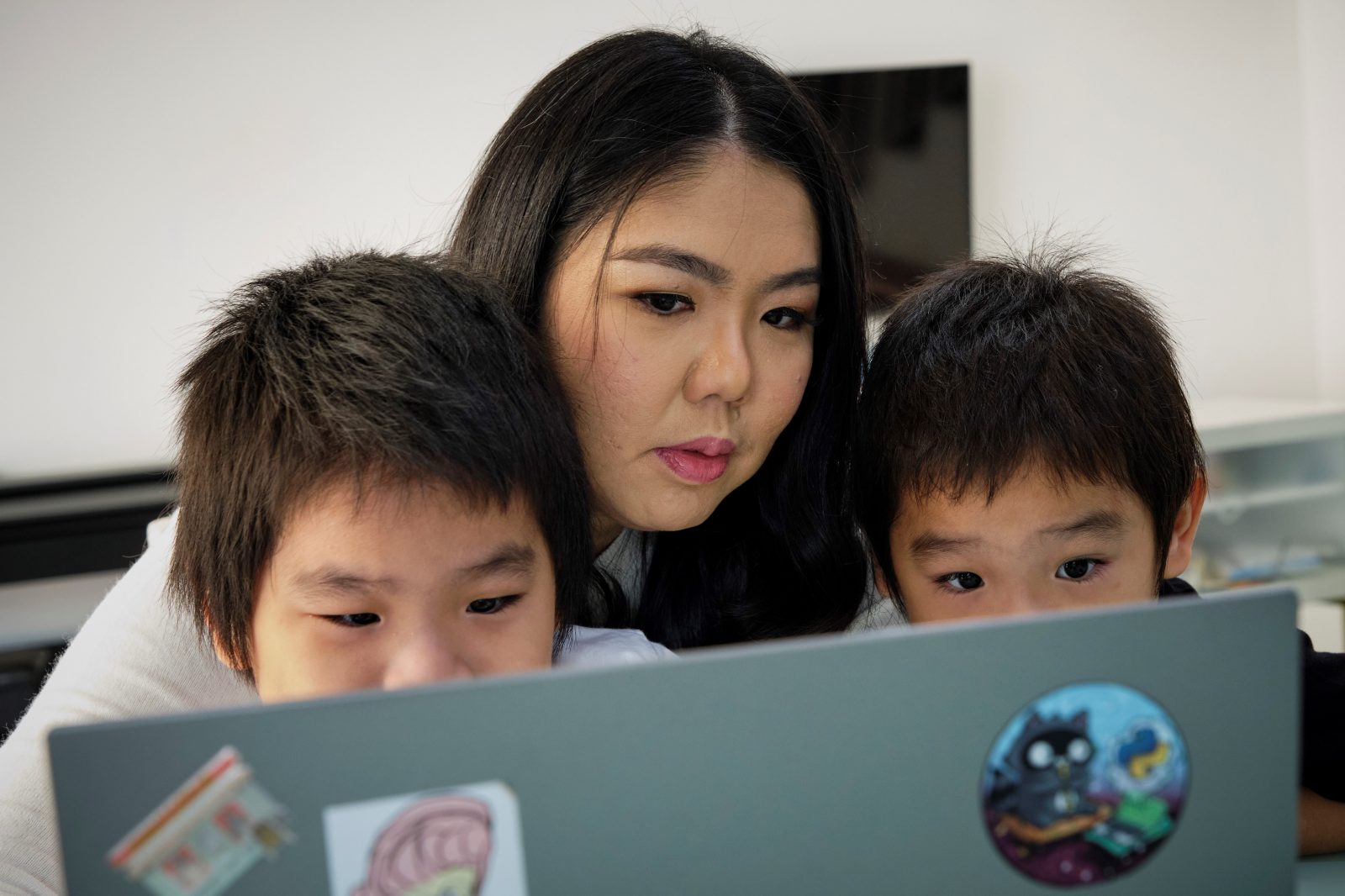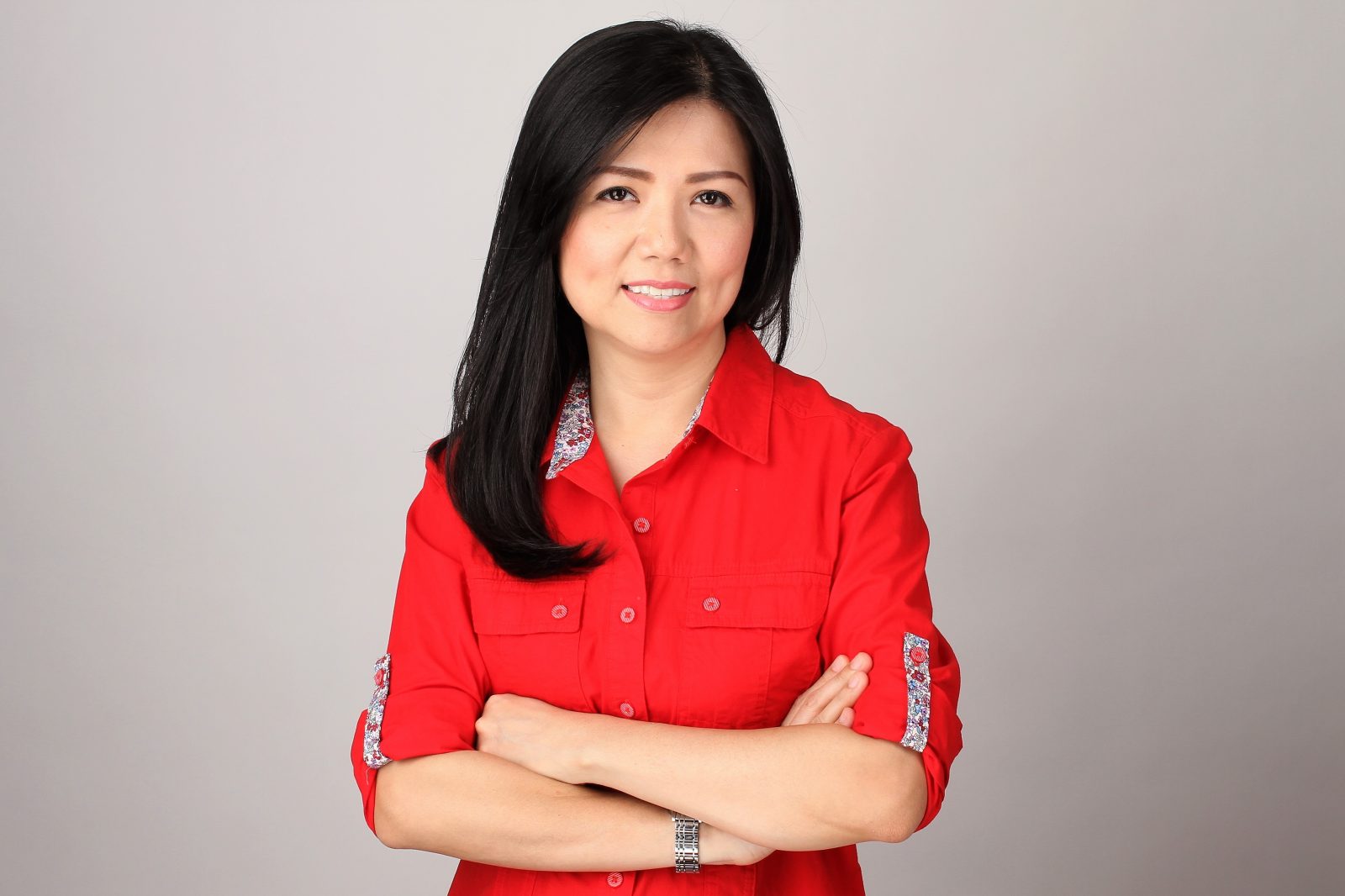
People of Microsoft Asia
A parent’s journey starts with the empathy and allyship of others
Juliana Cen finds support through colleagues as she cares for her twins who have a disability
Juliana Cen had been trying for weeks to find a pre-school to accept and support her 5-year-old twins, Allen and Darren. It was proving challenging and frustrating as both boys have been diagnosed with sensory processing disorder (SPD).
Cen gave up her weekends and took extra time off work to visit multiple pre-schools in Jakarta, Indonesia’s sprawling capital. But none of them offered the programs that her sons needed. Here, as in many parts of the world, gaps in an education system can mean a school is unable to provide support for many children with disabilities.
She became increasingly worried as her search for a suitable pre-school dragged on.
“I feared for their future,” she says of her boys who had been born prematurely. “If I died first, would my kids be able to take care of themselves? That was my biggest worry.”
Meanwhile, at work, Cen hadn’t disclosed to her colleagues that her sons had SPD. She refrained from talking about them and did not bring them to the office for family day events to avoid questions about their behavior.
She was engaging in “covering” behavior – that’s when someone, consciously or unconsciously, downplays a part of their identity to fit in. They want to avoid being seen in a negative light for who they authentically are.
Cen’s constant worrying led to sleepless nights and mounting stress. Eventually, she couldn’t help but express the strong emotions she was feeling under so much pressure.
One day she broke down in tears in the Microsoft Indonesia office.
When she finally opened up, she found her colleagues to be empathic and encouraging, making her journey of looking for the right pre-school easier. Their continuing allyship is helping her better address her children’s needs.
Her story
Cen was born into a middle-class ethnic Chinese family in Pematang Siantar, a small town in the province of Sumatra. She had been expected to care for her elders and work in the family business, but Cen wanted a career in technology.
Initially, her family was against her leaving home to study. But soon, her mother and aunt urged her to pursue higher education and chase her dreams. She gained a full scholarship and maintained a 4.0 GPA throughout her time at university. Following graduation, she moved to Jakarta and worked for an IT device company.
Her twins were born in 2015. Two years later, she joined Microsoft Indonesia, where she is now a senior partner development manager (PDM).
A little later, she noticed that her sons were walking on their toes, repeating questions instead of answering them, and had difficulties in speaking. They were soon diagnosed with having SPD.
A culture of diversity and inclusion
Linda Dwiyanti, Cen’s manager, played a big role in supporting her. She says Microsoft’s culture of diversity and inclusion encourages allyship, which is about making an intentional decision to understand, empathize, and act in support of someone else in the way they want to be supported.
“Allyship is when you use empathy to understand what others are thinking and what challenges other people are facing,” says Dwiyanti. “Really putting yourself in other people’s shoes and deliberately trying to help and offer the support they want.”
Establishing a culture that encourages allyship takes years to cultivate and requires support from all levels in a company. Having the right culture can mean retaining strong and reliable talent.
READ more stories about diversity and inclusion
“It doesn’t matter how great a company is, how strong it is financially or how good its strategy is – if the company doesn’t have the right culture, it will not be successful or sustainable,” says Dwiyanti.
For her, leadership not only means achieving goals but also being able to coach team members, show that you care about them, and model the right behavior.
Learning from others
Cen appreciates the allyship of her manager and colleagues. She eventually found a pre-school that has programs to support her boys. She also signed the twins up for speech and sensory integration therapy. The cost was expensive, but Microsoft Indonesia’s human resources team helped her navigate her insurance claims and urged her to be flexible with her time.
“I was encouraged to be open to my colleagues and explain that I needed to leave the office by 5 p.m. so I could speak with my kids’ therapist,” she recalls.
Cen also joined Microsoft’s online support discussions for neurodiverse employees. She saw how many of them have grown up to hold valued positions in the company around the world.
“They were proof that neurodiverse people, including individuals with SPD, are working and thriving here at Microsoft. That’s not the case at every company,” she says.
Cen now maintains a healthy work-life balance and tries to switch off in the evenings to spend quality time with her family.
“In my previous company, we only talked about work. I have learned a lot in Microsoft about soft skills, including about allyship,” she says.
“I think it’s very important, and I’m grateful that Microsoft is promoting inclusion and allyship because it helps create an environment that’s more comfortable for people to speak up and for people to care about each other. This helps strengthen teams and creates better results.”
The pandemic and beyond
Like many of us, she is now mainly working from home during the current pandemic. Without having to commute every day in Jakarta’s heavy traffic, Cen has a lot more time to spend with her family.
“My time at home has helped to improve Darren’s speech,” says Cen. “Both my children feel their parents are there for them as we can talk more with them. Before the pandemic, I left for work at 6:30 a.m. and returned home by 8:30 p.m. Afterwards, I was too tired and went straight to sleep, but now I can have breakfast with my mom and have lunch with my kids every day.”

Unfortunately, the pandemic has temporarily closed therapy clinics for children with SPD. And online education can be harder for some children who find it difficult to sit in front of a computer screen for hours.
“In school, kids can play with their friends,” says Cen. “Even on the weekends, my son wants to wear his school uniform. He probably wonders why he can’t meet up with his friends, but he has a hard time expressing himself.”
Cen remains positive as she looks ahead. She is confident that when the time comes for her boys to start elementary school, she will find one that will support them.
“I want to bring out their strengths,” she says. “I want people to know that children with neurodiverse disabilities also have strengths that other children may not have.”
In recent months both boys have been expressing themselves by drawing more.
As Cen looks over their latest artworks, she is reminded of her friends with disabilities at Microsoft. They’ve become a source of hope for her – a constant reminder that anyone, including her boys, can thrive and achieve their dreams.
TOP IMAGE: Juliana Cen with her twin sons, Allen (left) and Darren (right). Photo: Ed Wray.

















